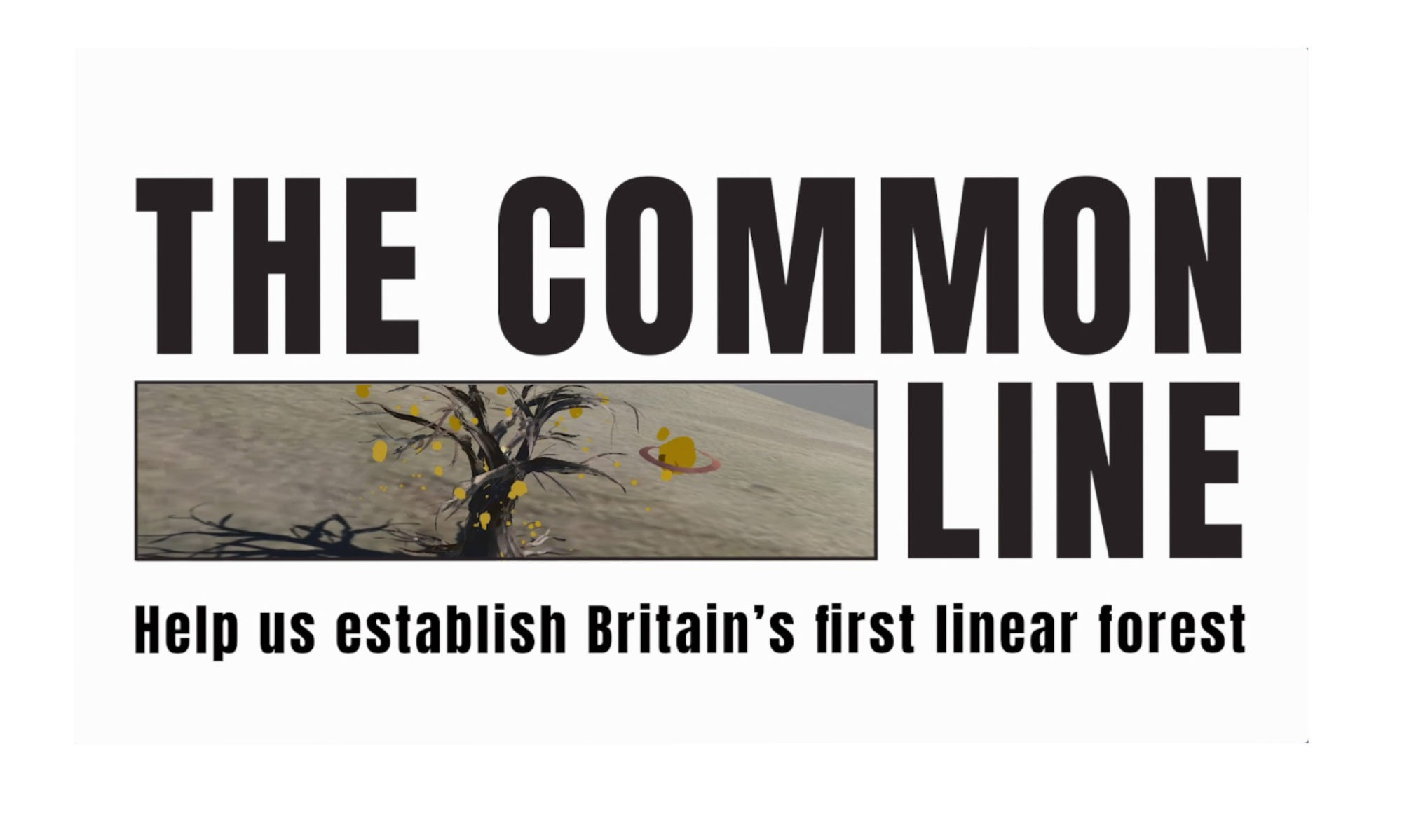Imagine a line that crosses the longest reach of mainland Britain from NW Scotland to SE England. Traversing and connecting fields, farms & fells; housing estates, shopping centres, roads & railways; schools, factories, back gardens & mountain-tops.
Now imagine that line planted with trees – one every 20 metres. In the places where living trees can’t be planted, or haven’t yet grown, imagine a host of Augmented Reality trees – hand drawn, modelled and animated by members of the public. The kind of trees we play in as children, that mark our daily journeys, feed us and offer shelter. Trees that might grow there in 100 years time – or may not survive there in the future.
This is The Common Line. You can interact with the first stages of its development here.
The Common Line is a living-digital land art work that aims to foster thinking, discussion and action about the futures of trees and the landscapes they live in, as things that need to be cared for together. Combining the eco-activism of tree planting with socially driven digital art practice, the Common Line is also a research project that aims to understand more about how participatory digital imaginaries can shape our physical worlds – for the better.
Find out more about our R&D process by watching this 6 minute video. To turn off the website sound, scroll to the bottom of this page to find the volume bar.
Anyone can become part of The Common Line. Keep updated on our progress and…
